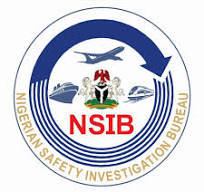CITA CEO Recommends Jet A1-Specific Regulatory Directorate To Enhance Policy Enforcement

The Chief Executive Officer of CITA Energies Limited, Dr. Thomas Ogungbangbe has recommended a Jet A1-specific regulatory directorate under the Nigeria Civil Aviation Authority (NCAA) or Petroleum Products Pricing Regulatory Agency of Nigeria (PPPRA) as part of measures to enhance policy enforcement and sector monitoring.
Presenting an industry overview at the CITA Energies Colloquium organized yesterday at Radisson Blu Hotel, Ikeja, Lagos under the theme, Aviation Fuel Business: The Scenario and the Metaphor, Ogungbangbe reeled out a 6 Ps Framework for the Nigerian Aviation Fuel Market, which could possibly offer solutions to pricing, supply chain constraints, availability and other bottlenecks.
The 6Ps are product, price, promotion, place, policy and partnership. On infrastructure, storage and distribution, he said robust infrastructure remains a critical bottleneck for Jet A1 supply continuity in Nigeria, adding that “NCAA mandates a minimum 7-day storage buffer; major marketers comply, but many smaller depots operate below recommended 300,000L capacity, jeopardizing supply and safety.”
On regulatory oversight, “enhanced inspection and real-time depot throughput monitoring are necessary to regulate small facilities operating at high volumes.” On airport infrastructure, “many airport depots lack good road network for bowsers. Public-private partnerships (PPP) could drive infrastructure upgrades at key airports including Lagos, Abuja, and Port Harcourt.”
On into-plane fuelling rights, “licensing should require minimum storage, technical competence, and a history of reliable supply to ensure operational consistency” and on PPP Investments, “pipeline rehabilitation, storage expansion, and digital automation financed via PPPs can cut logistics costs and improve fuel availability.”
Ogungbangbe says “a strong policy framework assures operational integrity, environmental compliance, and future readiness for the aviation fuel industry,” adding that “clear licensing rules, periodic audits, and digital tracking deter malpractice and sustain fair competition” and that “Nigeria should foster partnerships for SAF R&D, incentivize local biofuel production, and align with ICAO’s CORSIA to prepare for global SAF integration.”
On digital monitoring systems, he said incorporating IoT sensors, blockchain traceability, and AI-enabled monitoring allows real-time oversight of product quality and flow. He said licensing should require minimum storage, technical competence, and a history of reliable supply to ensure operational consistency. He also made case for collaboration and capacity building. “Ongoing market advancement depends on multi-stakeholder collaboration and strengthening national technical capabilities,” he said, adding that “a Joint industry pricing forum can proactively manage price volatility by involving marketers, airlines, and regulators.”
Ogungbangbe further said “structured payment models or credit guarantees, potentially through BOI or NEXIM, can ease liquidity challenges in the supply chain.”
According to him, “pooled procurement by airlines can yield economies of scale, improve supply stability, and reduce forex exposure,” and “emphasizing technical training, indigenous engineering, and local depot equipment fabrication boosts national capacity.”
“Sustained professional development through IATA-accredited training, NCAA programmes, and academia partnerships is vital for technical excellence and industry growth.”
“The evolution of aviation fuel in Nigeria mirrors the nation’s own journey — from dependency to determination, from challenges to change. The advent of indigenous refineries may redefine the supply chain, but it is our collective vision, collaboration, and integrity that will define the future,” he said.
The event also featured the celebration of Dr. Ogungbangbe’s 55th birthday anniversary.
SEE MORE PHOTOS






